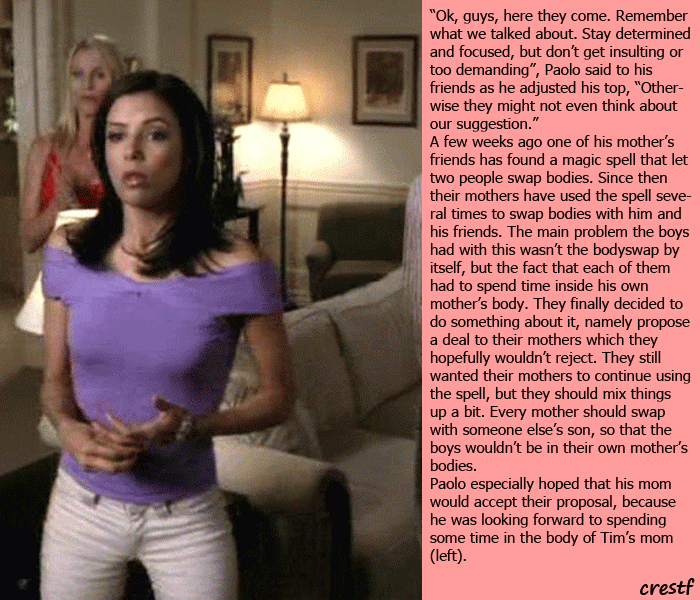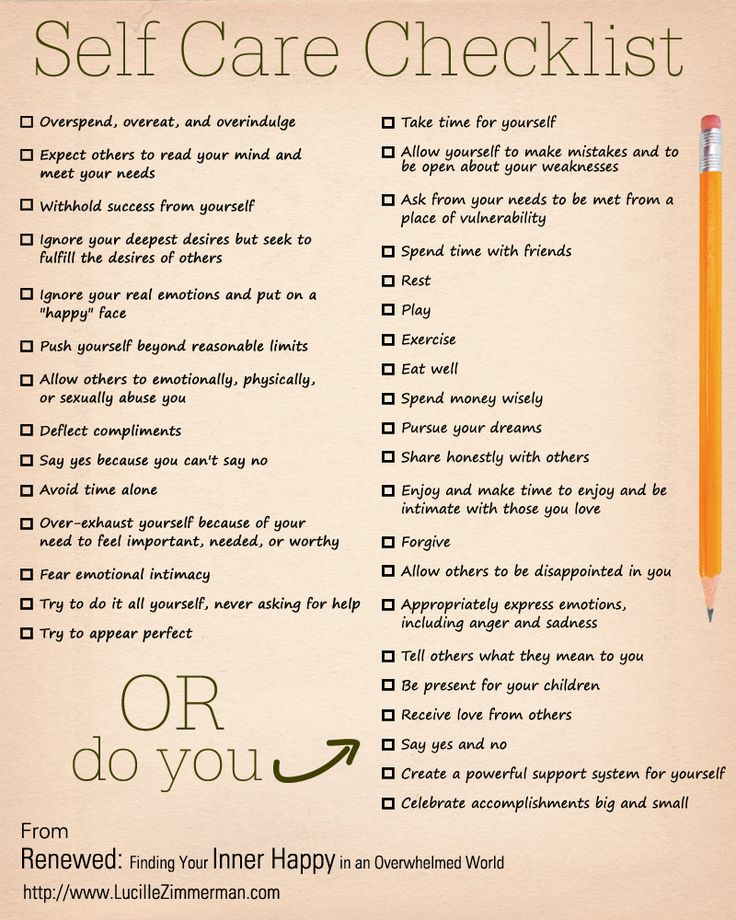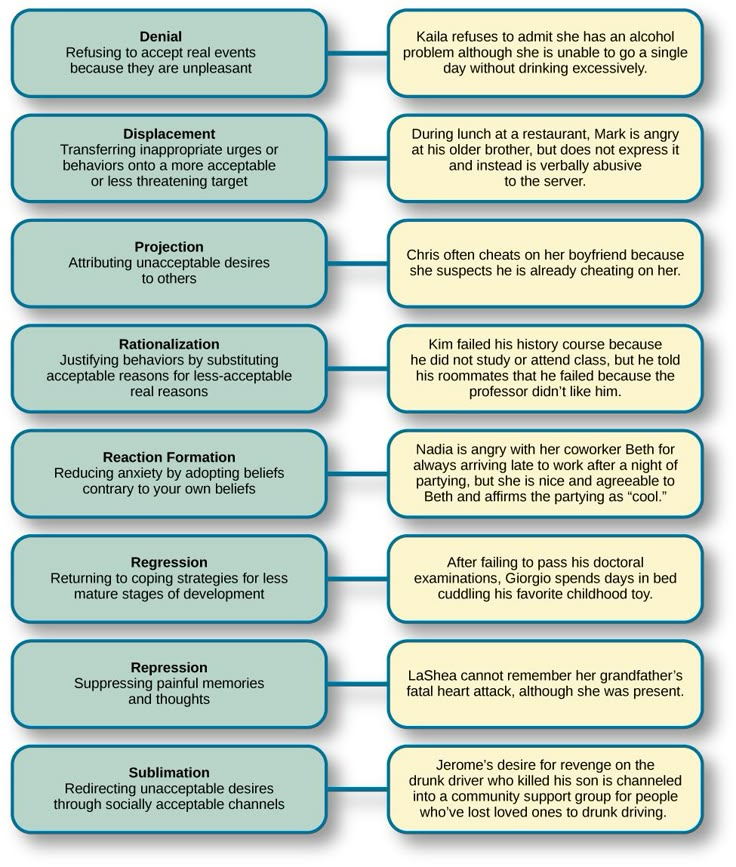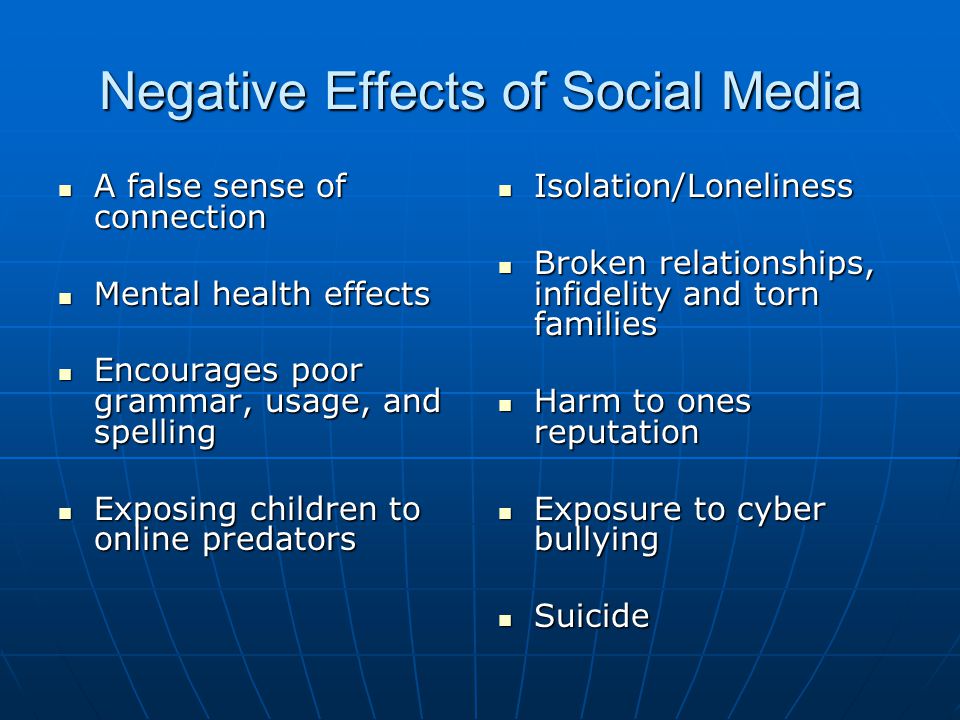Constantly let down by husband
My Husband Disappoints Me All the Time
5 Ways to Inspire Him to Be a Better Man
By Laura Doyle | Updated: 12/16/2022
Being constantly disappointed in your marriage can wear you down and make you hopeless about the future.
Maybe your husband disappoints you when it comes to celebrations–he forgets your anniversary, gets you a present that has nothing to do with what you like, or acts like it’s just another Wednesday.
Or, let’s say he complains when you’re sick because you aren’t doing the things you normally do. The demoralizing message is that you’re not that important except for what you contribute, not to mention his lack of compassion when you just want to be taken care of!
Or he may be a disappointment in a bigger sense, like not showing up to be the dad your kids deserve.
Either way, you don’t have to just suck it up and continue to hurt endlessly.
Here are 5 ways you can inspire your man to treat you better.
Contents
1.
Although your husband seems to be letting you down a lot, that’s not his intention. No husband wants to disappoint his wife–quite the opposite. He married you with the intention of making you happy, not crushing your hopes and dreams till death do you part.
That desire to delight you is still in him, even if you haven’t seen it for a while. One way to fan the flames of that desire is to wait for him to do something that you like–even if it’s something small–and pounce on him about it. In a good way.
You could say, “I noticed you made the bed this morning, and that made me so happy! I just love that you were so thoughtful and made the bedroom look so beautiful for me. Thank you, sweet husband!”
Sure, there are lots of things he’s doing that are letting you down, but he did this one thing right and by focusing on that, you let him know that he can succeed in making you happy. Once he feels like a success, he’s likely to look around for more ways to delight you.
2. Express Your Desire in a Way that Inspires
Every year, Belinda complained that her husband let her down on her birthday. He never got a present or planned anything special, which left her feeling unimportant.
“I just want him to do something special for me,” she told me. “I don’t know what, but you’d think he could figure it out.”
When I asked what would make her happy on her birthday, at first Belinda was confused. “The whole point is that I want him to surprise me,” she said. “If I have to figure it out myself then what’s the point?”
Still, she conceded that there was a new restaurant she wanted to try and that she always enjoyed going for a walk on the pier on a balmy night. She expressed her pure desires to her husband by saying, “I would love to try out that new Mexican place and go for a walk on the pier.”
Sure enough, her husband took the whole family out to the new Mexican place for her birthday. After dinner he announced, “Now we’re going for a walk on the pier. ”
”
You might argue that it wasn’t very imaginative on his part to do exactly what she’d said she wanted, but it was the best birthday she could remember having in years. Which, of course, she told him now that she had multiple opportunities to catch him doing something good.
She was amazed that when she said how much she enjoyed the birthday activities he had planned for her, he grew a foot taller and beamed.
3. Let Him Know How Happy He Makes You
This leads to one of the most powerful ways to stop getting disappointed by your husband: telling him how happy what he’s doing is making you.
I’m not suggesting that you lie, but I am suggesting that it can be powerful to change your focus to what he does do instead of focusing on what he doesn’t do that you wish he would.
One woman told her husband how much she appreciated him working hard to support the family even though she didn’t think that would be a big deal to him. She was surprised that he got something in his eyes right then.
When you find the specific things that he does contribute to your life and get happy about them, they will multiply.
4. Talk to a Friend
But what do you do with those disappointed feelings that keep popping up?
Telling your husband how disappointed you are, again, is just going to make him defensive. It will never inspire him to stop disappointing you. Even though it seems that’s how it should work, it never does.
If you decide you want to preserve the intimacy in your marriage but you also need to process how disappointed you are that he doesn’t like to spend time with your family, you could talk to a neutral party, like a friend.
Like the time my husband walked on the new rug with his freshly polished black shoes and wrecked the rug.
Sigh. I just needed to talk to someone about it, but he already felt bad enough, so I didn’t want to talk to him about it.
My BFFs gave me the empathy I needed so I didn’t create a marital problem in addition to the problem with the new rug.
5. Fill Yourself Up
Sometimes my husband disappoints me because I’m already in an agitated state. I’m tired or hangry or sick, and the world doesn’t look right.
I recently had a cold and wanted him to take care of me by bringing me soup.
But he didn’t know that. In fact, when he asked if I was hungry I said I wasn’t, and then I was disappointed that he didn’t try to force nourishment on me.
Being sick will cause lapses in logic like that, in my experience.
John would like the record to show that he did go get me soup after I said I wanted it.
Most of the time I’m pretty good at figuring out what I want and expressing that or giving it to myself so I don’t get resentful toward him for not reading my mind.
The more happy and fulfilled I am, the less chance I have to feel disappointed about anything my husband does because I can more easily hold on to the perspective that the man just wants to make me happy.
Which of these five tips will you focus on this week? Will you share more gratitude? Express your desires? I’d love to hear in the comments below.
By Laura Doyle
Hi! I'm Laura.
New York Times Bestselling Author
I was the perfect wife--until I actually got married. When I tried to tell my husband how to be more romantic, more ambitious, and tidier, he avoided me. I dragged him to marriage counseling and nearly divorced him. I then started talking to women who had what I wanted in their marriages and that’s when I got my miracle. The man who wooed me returned.
I wrote a few books about what I learned and accidentally started a worldwide movement of women who practice The Six Intimacy Skills™ that lead to having amazing, vibrant relationships. The thing I’m most proud of is my playful, passionate relationship with my hilarious husband John–who has been dressing himself since before I was born.
View Archive →
What to Do When Your Spouse Disappoints You
Disappointment hurts, especially from the one you love the most. And when your spouse disappoints you, you probably experience several emotions. Anger. Frustration. Hurt. Sadness. Bewilderment. (What were they thinking? Right?)
Anger. Frustration. Hurt. Sadness. Bewilderment. (What were they thinking? Right?)
Disappointment in your spouse can spark uncertainty and shake your trust. It might even make you wonder if you can rely on them at all.
First, let me just say: You’re not alone, and every married person disappoints their spouse at some point. Your feelings are honest, legit, and okay. And even though disappointment is common in marriage, knowing that doesn’t really make things easier. So let’s talk about it.
Some things to consider:
Unmet expectations breed disappointment.Everybody enters marriage with a certain standard in mind.1This is a good thing. It means you have relationship goals. You want your marriage to thrive. If your spouse lets you down, it hinders those goals. Enter disappointment and the emotions that follow.
Ask yourself:
What do you expect from your spouse? How do your expectations connect to your overall relationship goals?
Disappointment comes in different flavors.Although everybody experiences disappointment in marriage, it’s not all the same. It may stem from a specific issue. I can’t believe they forgot to take the trash out… again. Or, it can be more general. This is not how I thought it’d be.
Disappointment can also happen over seemingly minor or explicitly major issues (whether it’s the trash or infidelity). Of course, disappointing situations feel major to you. That’s why they’re disappointing.
Healthy responses to disappointment may be somewhat different depending on the situation.2 The big lesson here is to become aware of why you’re disappointed.
Ask yourself:
What exactly did your spouse do or not do that disappointed you?
Is the disappointment in something specific or general? Issues that are minor or major?
You are coping with your disappointment in one way or another.
You can’t help but respond, whether involuntarily or by choice. Even if you’re not sure what to do, you may feel angry, passive-aggressive, secretly imagine getting back at them, or avoid the issue altogether.
However, there are healthy and unhealthy ways to cope and respond. Choosing to respond in a healthy way is key to working through the disappointment.
Ask yourself:
How are you coping or responding right now? Would you say your responses are healthy or unhealthy?
Be careful about what your disappointment might lead you to assume.When your spouse disappoints you, it usually doesn’t mean:
- He or she is a bad person.
- They aren’t right for you.
- Your marriage is doomed.3
At the least, it means that expectations need to be clear. And for the more serious offenses, your partner may need help to overcome certain behaviors. (More on that in a bit.)
And for the more serious offenses, your partner may need help to overcome certain behaviors. (More on that in a bit.)
Ask yourself:
Why might your spouse have acted (or failed to act) the way they did that led to your disappointment?
What do you do, then, when your spouse disappoints you? How do you handle it?- Reframe it. Ironically, even though it feels like your disappointment drives you further away from your spouse, it can be an opportunity to grow closer. Try looking at it as a chance to clarify what you both expect and strengthen your marriage goals.
- Express it, but being aware of your composure is key. Remember: How you come across when you explain your disappointment influences your spouse’s response.
- Have forgiveness at the ready. Forgiveness is a process. But it’s tough to move forward if you harbor resentment and bitterness.

- Re-clarify your expectations. What do you specifically hope for from your spouse? Does your spouse think they can successfully meet your expectations? Work on compromises and talk about how expectations can be realistic and shared.
- Ask your spouse how you can help each other be more successful at meeting expectations.
- Continually affirm your spouse for their effort.
Realize that it might be best to seek a professional counselor’s advice at some point. This is especially true if your spouse’s behavior is recurring or addictive, or if they show apathy or disinterest in working toward a solution. Seeing a therapist together is best. But if they won’t go with you, seeing a counselor on your own can help you find healthy ways to cope.
It’s not fun when your spouse disappoints you, but it is normal. And it’s a chance to be in a better place today than you were yesterday. Choosing healthy responses can help you grow closer to your spouse in the midst of disappointment.
And it’s a chance to be in a better place today than you were yesterday. Choosing healthy responses can help you grow closer to your spouse in the midst of disappointment.
1Baucom, Epstein, N., Sayers, S., & Sher, T. G. (1989). The Role of Cognitions in Marital Relationships: Definitional, Methodological, and Conceptual Issues. Journal of Consulting and Clinical Psychology, 57(1), 31–38.
2Lazarus R.S., & Folkman, S. (1984). Stress, appraisal, and coping. New York: Springer-Verlag
3Vangelisti, & Alexander, A. L. (2002). Coping with Disappointment in Marriage: When Partners’ Standards Are Unmet. In Understanding Marriage (pp. 201–227). Cambridge University Press.
Did this blog give you the information you were looking for and give you tools to help improve your relationships?
“He brought me to the mirror and hissed that I was terrible”: what to do if my husband is morally harassing
Komsomolskaya Pravda
Search results
SocietyInteresting
ELENA PRIKHODKO
and explains whether it is possible to save relationships if everything is bad in the family
Photo: unsplash. com
com
“I have no one else to turn to and consult: relatives will not understand, and I am ashamed in front of my friends. But we can no longer live like this.
From the outside we have an ideal family. We live in our own house, our husband has a good position, we are raising a wonderful son. I can not work, I do housework and gardening. But the idyll is only outside. No one guesses, but my husband is psychologically destroying me.
We have been together for 7 years, got married with great passion. At first everything was fine, although the signals appeared even then. For example, my husband could make fun of me in front of everyone or play a rude joke. I was offended, but in private he apologized and said that I perceive everything inadequately, while the rest are funny. For a long time I believed that the matter was in me, but the bells became more and more serious.
Now he is bullying me hard and aggressively. When I was on maternity leave, I constantly itched that I was degrading and not taking care of myself. He brought me to the mirror and hissed: “Look how the figure has blurred”, “It’s a shame to go outside with you”, etc. Moreover, he did not give money either for fitness or for cosmetics. He argued that I should earn money for women's whims myself. Now I'm trying to find a job, but again everything does not suit him. Either the male team, or the salary is ridiculous, or the schedule does not fit. Another point is isolation. My husband doesn’t let me drive our car: “You passed your driving license on the 4th try, which driver are you?!”
He brought me to the mirror and hissed: “Look how the figure has blurred”, “It’s a shame to go outside with you”, etc. Moreover, he did not give money either for fitness or for cosmetics. He argued that I should earn money for women's whims myself. Now I'm trying to find a job, but again everything does not suit him. Either the male team, or the salary is ridiculous, or the schedule does not fit. Another point is isolation. My husband doesn’t let me drive our car: “You passed your driving license on the 4th try, which driver are you?!”
Photo: unsplash.com
I am locked at home. We live outside the city, I can’t ride minibuses with my child to take a walk or meet friends. Although at such a pace, there will soon be no one to see: my friends have almost forgotten how I look. Husband infuriates, even when we talk on the phone with them.
I'm tired of living on a powder keg and not having my own opinion - after all, my opinion is always stupid and wrong. But I don't know what to do either. I love my husband and want to save the relationship, but I'm afraid that things will get worse. When I talk about divorce, the husband gets angry, threatens that the child will stay with him. These are not just threats. He really adores the child and behaves like an exemplary father. Of course, except for the fact that he constantly humiliates his mother. And I'm naked like a falcon, and there is no one to stand up for me. And I’m not good for anything myself - he repeated this to me so often that I myself believed it.
I love my husband and want to save the relationship, but I'm afraid that things will get worse. When I talk about divorce, the husband gets angry, threatens that the child will stay with him. These are not just threats. He really adores the child and behaves like an exemplary father. Of course, except for the fact that he constantly humiliates his mother. And I'm naked like a falcon, and there is no one to stand up for me. And I’m not good for anything myself - he repeated this to me so often that I myself believed it.
“The wife is obedient, and the husband is in the role of a punishing parent”
- One of the main functions of marriage is psychotherapeutic, - explains Natalya Belskaya-Korney, psychologist, Gestalt therapist, Master of Psychology. - It implies the ability of spouses to be attentive to each other, to be able to listen and support. When we create a family, we count on a safe and trusting relationship, which, alas, we cannot always build. It often happens that women (especially young mothers) become dependent on their spouses both financially and emotionally. If such a model is formed in a relationship, it is very difficult to get rid of it. Let's try to figure out how it works.
It often happens that women (especially young mothers) become dependent on their spouses both financially and emotionally. If such a model is formed in a relationship, it is very difficult to get rid of it. Let's try to figure out how it works.
Photo: unsplash.com
Often, in a long relationship, individual boundaries between people are erased. “I” becomes “we”, which causes problems and difficulties. For example, interest in each other fades away, an illusion arises that there is a person nearby whom we know everything about. There is a belief that the partner will not go anywhere. Relationships can slide into mutual humiliation, depreciation. And then it is useful to say the phrase: “You can’t do this with me.” After all, marriage is a free choice. It's good to remember that it can change at any moment.
First of all, I recommend the author of the letter to legalize the problem in relations with her husband. That is, to make it clear to the spouse that his words hurt painfully, and to warn that the topic of oppression can no longer be ignored. It also makes sense to contact a family psychologist - he will help to assess the situation impartially and find a way out.
It also makes sense to contact a family psychologist - he will help to assess the situation impartially and find a way out.
Based on the text of the letter, instead of partner relations, the spouses play the child-parent model, in which the wife is obedient, and the husband is in the role of a supervising and punishing parent. What to do in this case? Start with yourself: soberly assess the situation, analyze behavior, responses, ways to build and maintain contact in relationships. Your primary task is to discover everything as it is. And the second is to change your ways of interaction to more productive ones. Take responsibility for the result and find the strength to get out of the victim role.
Photo: unsplash.com
Remember that conflicts between spouses are normal. The task of a husband and wife is to get out of them productively. It does not mean to become a winner at any cost. This means being able to listen to the point of view of the spouse, express your own as clearly as possible and, together, for the benefit of the family, find a way out of the current situation. This is possible in partnerships in which both spouses are equally significant. The strategy of cooperation and "playing on the same side of the field" is appropriate here. That is, the question is not “how can I change him / her (force)”, but “how can we find ways together to solve temporary difficulties”.
This is possible in partnerships in which both spouses are equally significant. The strategy of cooperation and "playing on the same side of the field" is appropriate here. That is, the question is not “how can I change him / her (force)”, but “how can we find ways together to solve temporary difficulties”.
Fear in relationships: manipulation by the aggressor or a real threat?
If you feel fear in your relationship with your husband, try to analyze whether the danger is real. Sometimes we automatically borrow emotions from past experiences. For example, a person grew up in a family in which parents quarreled, and it came to assault. Naturally, in childhood this caused a feeling of defenselessness, powerlessness, horror. Experienced childhood traumas make themselves felt as soon as conflict is brewing in a relationship. In a stressful situation, the same image of a dangerous man is projected onto the husband.
Photo: unsplash.com
However, I emphasize: if the partner really threatens, beats or kicks out of the house - all this ceases to be the area of competence of the psychologist. Psychology ends where the criminal code begins. In this case, I advise you to contact a lawyer, find out the addresses of social centers that deal with domestic violence. Therefore, you need to figure out in what situations you can stay outside the door of your own house, and in which it is an empty threat and manipulation of the aggressor.
Psychology ends where the criminal code begins. In this case, I advise you to contact a lawyer, find out the addresses of social centers that deal with domestic violence. Therefore, you need to figure out in what situations you can stay outside the door of your own house, and in which it is an empty threat and manipulation of the aggressor.
There are always two people in a relationship. If one did not hear something, it means that the other did not consider it necessary to repeat it again
Ask yourself questions: what do you value yourself for? Do you recognize your contribution to your family life, to raising a child and running a household as valuable and worthy of respect? Take some of the responsibility for the result you have reached so far. This is not the work of one of the spouses, but of “joint creativity”. There are always two people in a relationship. And if one did not hear something, it means that the second did not consider it necessary to repeat it again.
Learn to listen to yourself. After all, it is difficult to get what you want from the world without the skill to differentiate emotions and feelings. Not being able to understand what needs and their dissatisfaction we are dealing with. If your relationship is dominated by anxiety, fear, irritation - ask yourself what you want and how you can get it. Do you want a trusting relationship with your husband? And can you be honest and freely express your thoughts in a dialogue with him? Do you want to drive? How do you defend your right to do this without dying from the phrase: “What kind of driver are you”? After all, this is just a skill, and not a “super-competence” of the chosen ones of this world.
Photo: unsplash.com
Review family values. Does your list include mutual respect, trust, support, security, reliability, interest in each other? Do you agree with the roles that you now have, how similar are the expectations and claims in life together? These questions are not solved once and for all. Families periodically return to them again and again, especially when moving to a new stage of life (the birth of children, changes in social status, material prosperity). With the help of a banal dialogue, you can solve many pressing issues, without which no marriage can do.
Families periodically return to them again and again, especially when moving to a new stage of life (the birth of children, changes in social status, material prosperity). With the help of a banal dialogue, you can solve many pressing issues, without which no marriage can do.
And finally, let's do a thought experiment. Step one: imagine how you will live in 5 years. What image do you get? How do you feel there, what happened during this time with the relationship? Do you like what you saw? Second step: what does your ideal life look like in the same 5 years? Create a positive image that you want to strive for. What can you do today to get closer to the life you dream of? Do not be alone, because all the questions raised are about interaction and contact with people. You can and should look for a good form of relationship and do not hesitate to spend your energy, time and, if necessary, money on this.
READ ALSO:
“I'm not going to breed poverty like you”: did I raise an ungrateful daughter or a bad mother myself?
A cry for help from a mother, whom the child reproaches for a spoiled childhood (read more. ..)
..)
“My husband wants to take the child from his first marriage to us! But I'm afraid, then I'll leave. What to do?"
Belarusians often remarry and face the problem of how to accept their spouse's child? (psychologist's advice...)
“I jump when I cough, and my hands reach out to buy buckwheat!”: a psychologist advises how not to panic because of the coronavirus
People are buying masks and groceries, refusing vacations and avoiding friends. How to control yourself when the world is going crazy? (read more...)
Age category of the site 18+
The online edition (website) is registered by Roskomnadzor, certificate El No. FS77-80505 dated March 15, 2021
CHIEF EDITOR OLESIA NOSOVA.
EDITOR-IN-CHIEF OF THE SITE - KANSKY VIKTOR FYODOROVYCH.
THE AUTHOR OF THE MODERN VERSION OF THE EDITION IS SUNGORKIN VLADIMIR NIKOLAEVICH.
Messages and comments from site readers are posted without preliminary editing. The editors reserve the right to remove them from the site or edit them if the specified messages and comments are an abuse of freedom mass media or violation of other requirements of the law.
JSC "Publishing House "Komsomolskaya Pravda". TIN: 7714037217 PSRN: 1027739295781 127015, Moscow, Novodmitrovskaya d. 2B, Tel. +7 (495) 777-02-82.
Exclusive rights to materials posted on the website www.kp.ru, in accordance with the legislation of the Russian Federation for the Protection of the Results of Intellectual Activity belong to JSC Publishing House Komsomolskaya Pravda, and do not be used by others in any way form without the written permission of the copyright holder.
Acquisition of copyright and communication with the editors: [email protected]
6 stories about financial dependence on a partner
Olesya Vlasova
studied the experience of female readers
Author profile
Financial dependence can manifest itself in different ways.
Often a man has to provide for his family after the birth of a child, sometimes a couple agrees to share household and financial responsibilities, and it happens that one of the partners supports the other in a difficult life situation. Readers T-Z told us how they experienced financial dependence and how it changed their attitude towards money and themselves.
These are the stories of readers from the S-Z Community. Collected into one material, carefully edited and formatted according to editorial standards.
History 1
When you take care of a child with a disability, but you cannot buy anything even with your Anonymous
could not buy anything for a long time
Went on maternity leave as a full-time student. For about two years, my husband fully supported me. He didn't mind, but at the same time the money flew down the drain. Although my husband’s salary was quite large, I didn’t update my wardrobe for a long time and we didn’t buy anything beyond what was necessary.
The only exception is that we had trips, but only because my husband loved them himself. As a rule, these trips were not too comfortable for my son and me. For example, once we went to Europe on Christmas Eve and spent the whole day in an eight-meter room of a small motel somewhere in the industrial area between the city and the airport. Everything was busy on holidays, and there was no money for a normal room.
We have a child with a disability, so I devoted a lot of time to his health. At the same time, I studied at the institute, and a couple of years later I started working as a freelancer, engaged in copywriting and administration of online projects. I received about 10,000 R per month.
One day my husband and I quarreled because he would not allow me to buy a desk with my (!) money, at which we could fit together with my son - he would draw, and I would study and work.
Now my husband and I practically do not communicate: he ended up in prison. I complete my studies and continue to work as a freelancer. I still don't get much, but more than before. With the child disability allowance, there is enough for life. I started investing little by little. Our family's income was greatly reduced, but I still began to spend more on myself. And I also realized that I am a very strong person. If you direct this potential in the right direction, you can achieve a lot.
History 2
When you don't think about money and don't know how to pay utility bills Anonymous
started to manage my own budget
For almost all of my 30 years I depended on someone. Until adulthood - from parents. From 18 I began to live with my future husband, he was then in his last years at the university, and I just entered the evening department and could work. So I kept us for a couple of years. At that time, I was making good money - from 40,000 to 80,000 R per month. Then my husband also started working and began to quickly move up the career ladder. At 21, I became pregnant, and he began to fully provide for me.
I did what I wanted: I devoted all my time to my son and traveling, since my husband was making good money and we could afford to travel around the world. At the age of four, my son was given a place in a kindergarten, and I began to look for remote work. On the first project, she earned 40,000 R per month, on others - from 10,000 R to 50,000 R. It happened that she did not work at all for six months. Once my husband gave me 40,000 R, I added another 50,000 R and opened an online store. I got very carried away with it, and then burned out.
We had a common family budget, my husband never limited me. I spent within the normal range and tried to save most of the money for travel, equipment or repairs. In a word, my salary was not particularly taken into account in the family budget, since it was meager money compared to my husband's income. Accordingly, I had no motivation to earn money: for example, I often refused projects for 10,000 R. How wrong I was.
For seven years I have mastered several professions, I have always been a good mother and wife. The house was clean, my husband was waiting for dinner every day. I studied a lot, studied English and traveled. In general, she lived very well, in her comfort zone, didn’t think about anything and spent her time usefully.
The house was clean, my husband was waiting for dinner every day. I studied a lot, studied English and traveled. In general, she lived very well, in her comfort zone, didn’t think about anything and spent her time usefully.
But at the beginning of last year, my husband suddenly said that he was tired, wanted to live separately and was not sure that we would be together. And left.
I was shocked. She was left alone with a child in our apartment without a job, a car and personal savings. And I realized that I depended on my husband not only financially: I didn’t even know how to pay the bills for the apartment.
My husband wanted to come back in a week, but I didn't let him in. The child was told that dad was working, he took it well. As a result, we lived separately for two months. During this time, my husband transferred 15-25% of his salary to my card, bought food or equipment if it broke down.
Then I was in a depression, and only a psychologist and willpower helped me get out of it. But now, after almost a year, I am grateful to my husband for that terrible time. This whole situation knocked me out of my comfort zone, and I realized my mistakes. I realized that you need to rely only on yourself and be responsible for your actions. It is imperative that you save money yourself - even if you think that only death will separate you.
But now, after almost a year, I am grateful to my husband for that terrible time. This whole situation knocked me out of my comfort zone, and I realized my mistakes. I realized that you need to rely only on yourself and be responsible for your actions. It is imperative that you save money yourself - even if you think that only death will separate you.
/dependence-on-parents/
“I was a loser who had 400 R with me”: how to be less financially dependent on parents
Now the main expenses are still on the husband: food, apartment, equipment, car, travel, clothes. My money, as before, in general, does not affect the family budget, but I began to treat them differently. If I need to get a manicure, I don’t go to my husband, but I think about how to earn money. Now I am constantly looking for additional income, I save 10% of my salary to a brokerage account (I save for retirement and the education of a child), 10% - for IIS (to fulfill a dream). I spend the rest on myself: I go to beauty salons, buy clothes, and sometimes food and gifts for my husband. When I can open another brokerage account, I will save for expensive gifts and pleasures (travel, equipment, surprises).
I spend the rest on myself: I go to beauty salons, buy clothes, and sometimes food and gifts for my husband. When I can open another brokerage account, I will save for expensive gifts and pleasures (travel, equipment, surprises).
Our relationship with my husband improved, we became even closer - almost like in the first months when we first started dating. He compliments me, gives me gifts. I think this is because I began to believe in myself more, I have personal savings, and now my husband also takes care of his own finances. I am always busy with something - I read, I study, I think about how to increase income and at the same time not go to the office, but continue to take care of my son and family. Now my life is only in my hands, and this is very motivating.
History 3
When you take on all the chores around the house, you know that you can rely on a partner, but you still feel guilty Lily Monetka
unsuccessfully quit
About a year ago she came to St. Petersburg, met a young man, and we quickly began to live together. Then I worked in a dubious company as a marketer, I decided to leave, and the corona crisis broke out. I thought - I'll sit it out, I'll rest. But the quarantine dragged on, and I was afraid to waste time on stupid work, because I was emotionally burnt out on the last one. As a result, she asked her young man for a delay in the search. He agreed, told me not to rush and find a suitable option.
Petersburg, met a young man, and we quickly began to live together. Then I worked in a dubious company as a marketer, I decided to leave, and the corona crisis broke out. I thought - I'll sit it out, I'll rest. But the quarantine dragged on, and I was afraid to waste time on stupid work, because I was emotionally burnt out on the last one. As a result, she asked her young man for a delay in the search. He agreed, told me not to rush and find a suitable option.
For a while, I just did nothing. It was a little creepy to sit within four walls, but I rested and got involved in household chores: I compensated for the lack of work with housework, cooking, and budgeting. All summer I was restoring resources, not thinking about work and earnings, I gave myself time to think about what I want to do later. I am very glad that my boyfriend gave me this opportunity.
However, then she began to experience irrational fear and anxiety. Although life was completely on me, it became embarrassing that I did not invest financially. In the spring, it didn't feel so strong, because spending on entertainment, clothes, and pleasant things dropped to zero. But when life slowly began to return to its previous course, I began to be oppressed that I did not earn.
In the spring, it didn't feel so strong, because spending on entertainment, clothes, and pleasant things dropped to zero. But when life slowly began to return to its previous course, I began to be oppressed that I did not earn.
But this situation brought us together: now I know that I can rely on him. But still, I already want to get into a working state, show my boyfriend that he can also count on me, and give him a gift as a token of gratitude.
History 4
When taking care of your husband is your new job, and you can’t even ask for money Anonymous
afraid to ask her husband for money
As a student, she worked as an artist and rented a room in the center of Penza for 10,000 R. Every month, my parents partially helped me cover the cost of housing. But I did not want to burden them once again and took on the rest of the expenses.
After some time I met a young man. Without thinking twice, we got married and started living together. Now we live in my husband’s apartment, which his parents bought him even before we met.
Now we live in my husband’s apartment, which his parents bought him even before we met.
From the very beginning of the relationship, I was given to understand that my main role in the family is taking care of my husband and running a household.
Everything else - career, personal interests - fades into the background and is possible only after completing the main tasks as a wife. The task of the husband is to fully provide for the family. And he copes with it perfectly: my husband is an entrepreneur, he earns 100,000-200,000 R per month.
And at first it was difficult for me to get used to the task set before me and to do everything so that my husband was satisfied. I continue to work as an artist, but now I devote less time and attention to it. My work is piecework, on average, it comes out from 20,000 to 40,000 rubles a month.
My husband takes on groceries, utilities and most other household expenses. I pay my own whims like clothes, beauty salons, fitness, cosmetics and a small loan myself. My salary is enough for all this. Postpone fails. Sometimes you have to borrow from your husband until the next paycheck or just ask him for money. But he doesn't like it, and I try to do it only as a last resort.
My salary is enough for all this. Postpone fails. Sometimes you have to borrow from your husband until the next paycheck or just ask him for money. But he doesn't like it, and I try to do it only as a last resort.
/rich-wife/
How to keep a family budget when the wife earns more than her husband
Before the pandemic, I did not regard my financial situation as difficult. But during the spring self-isolation, my work stopped, I had to pay off a loan and had to borrow from my husband. With each loan and request for help, his patience decreased, and I realized that it was not worth approaching him with this question. It was only then that I realized that for three years, from the very beginning of our life together, I had been financially dependent on my husband. And that it bothers me a lot.
The realization of my addiction gave me a kick. Now I am getting a new specialty and at the same time I continue to work in order to pay for my education. I made a plan for the next two years. Now my main goal is to acquire real estate. Albeit small, but my own, to feel protected and know that I have my own corner in this world. I don't feel safe in my husband's apartment. This is not my territory, and here they do not particularly consider me.
I made a plan for the next two years. Now my main goal is to acquire real estate. Albeit small, but my own, to feel protected and know that I have my own corner in this world. I don't feel safe in my husband's apartment. This is not my territory, and here they do not particularly consider me.
History 5
When you want to devote a decree to raising children, but you need to ask for money "with female tricks" Anonymous
temporarily dependent on her husband
I am on my second decree in a row. I haven’t been working for almost four years - I’ve immersed myself in raising children. I really enjoy being a mom, I am changing, working on myself and growing. The opportunity to be with children 24/7 compensates for many unpleasant moments for me. I also do household chores, although my husband helps me a lot in this.
During all this time on maternity leave, I had to accept the situation that my husband has all the money, because he is so calm. A couple of times we tried to agree that a certain amount would remain on my card, but after some time, for various reasons, everything returns to normal. I have a card linked to my husband's account, but I used it just a couple of times - naturally, in agreement with my husband.
A couple of times we tried to agree that a certain amount would remain on my card, but after some time, for various reasons, everything returns to normal. I have a card linked to my husband's account, but I used it just a couple of times - naturally, in agreement with my husband.
I'm not used to asking for money because it makes my husband sad.
He would prefer that I approach him with all sorts of feminine tricks. Therefore, it is easier for me to refuse most of the "optional" purchases. Psychologically, the most difficult time is before the holidays: I used to spend more on gifts for my relatives and friends.
Although, in general, I don't worry much about my financial dependence. I am hardworking, I have a profession in demand, and at work I will be greeted with open arms. After the last crisis in family relations, she decided not to quit when the decree ended. In addition, we live in my apartment - and I will think a hundred thousand times whether it is worth selling it to improve living conditions and how to protect ourselves if we do go for it. So this is all a temporary situation that will last exactly as long as I allow it.
So this is all a temporary situation that will last exactly as long as I allow it.
/family-with-baby/
How to keep a family budget when the wife is on maternity leave
History 6
When you leave work so as not to be nervous during pregnancy, and your husband's income drops sharply Anonymous
grateful for the difficulties
I have been financially dependent on my husband for two years now. She decided to quit her job as soon as she got pregnant. I was satisfied with the salary, but I was a lot nervous and overworked. In addition, the design was gray and I would have received a penny on the decree. The husband had a main job and a side job, which together brought a good income.
At first everything went well, we did not deny ourselves anything, went on vacation and generally tried to relax a lot. And then her husband's earnings dropped sharply and noticeably. It was close to life. It was scary what would happen next, because in a couple of months I was due to give birth and physically could not work. And there was no one to ask for help.
It was scary what would happen next, because in a couple of months I was due to give birth and physically could not work. And there was no one to ask for help.
With a shudder, I remember 33 dishes from one chicken for a few days.
Or how I counted the last rubles to buy vitamins for pregnant women. Before the birth of my child, I drew a lot, read, walked, saw friends and slept when I wanted. Then the sleepless nights and the "zombie mode" began. But the husband began to receive even more than before the loss of earnings. In the meantime, we have already learned how to save money and realized how much money we used to spend on garbage.
Now we have savings and before buying anything we always compare prices in several stores. In a couple of months, all loans were closed and we hope not to fall into this hole again. When time permits, I master freelancing and a new profession. I need to learn a lot to reach the previous level of earnings.














